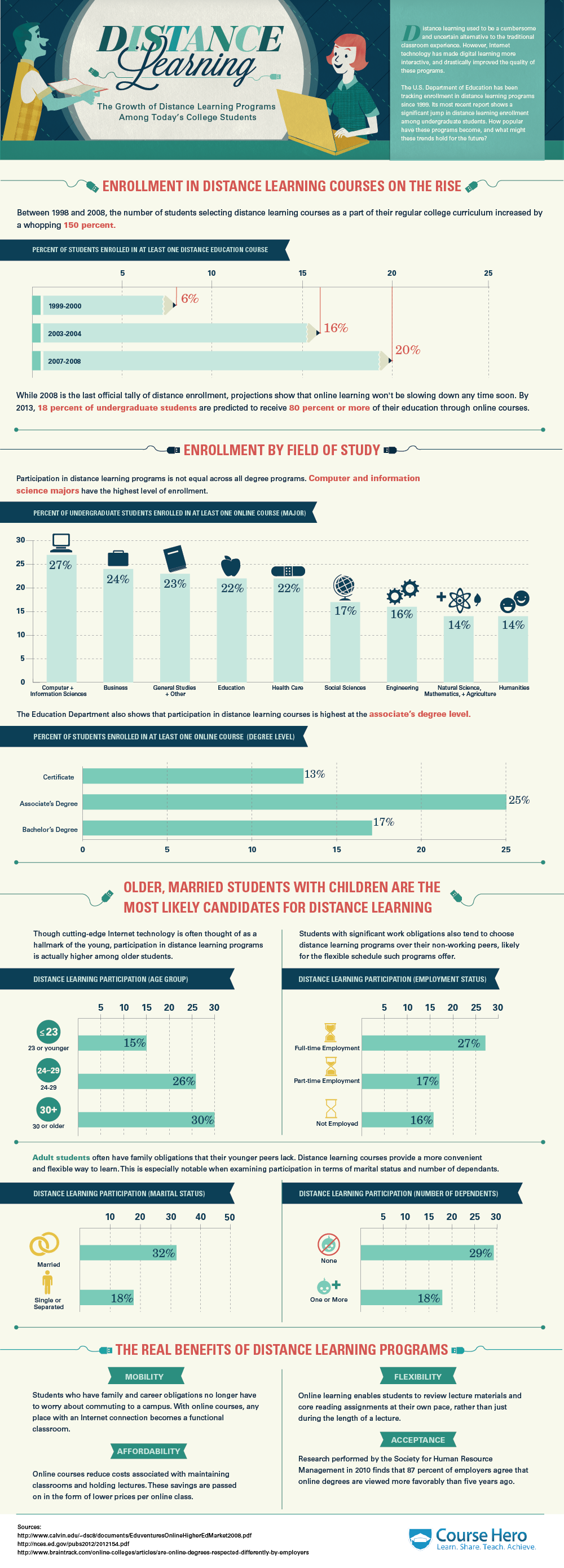The class isn’t always in the same place as the student. No matter:
Category Archives: Technology in education
Filling the inspiration gap
How can online learning help to fill the inspiration gap left by our declining education system?
Motivating students to pursue topics that interest them. Shocking fact of the day: students learn much better when they’re interested and engaged. Online education allows individualized learning and experimentation in a way that traditional learning cannot. That means students have the ability to learn what they want to learn. Sure, sometimes you have to learn things that you don’t like – and that’s where the online model offers more advantages…
Providing access to passionate, inspiring teachers. Given that a good online learning system is theoretically able to cast a worldwide net in terms of attracting talent, students benefit from the ability to interact with the best professionals in their desired field. Passionate teachers inspire passion in students.
Creating a structure where grades and examinations are secondary to real learning. At Rukuku, we believe that grades and exams shouldn’t be a purpose in and of themselves. When one takes his own initiative rather than being nudged (read: forced) to take a class for a grade, actual learning becomes the priority.
Another bonus of online learning: none of those inspiration-killing standardized tests!
Infographic of the week: online degrees
Infographic of the week: science, tech, engineering, and math education
This week, our focus shifts to education in the “left-brained” disciplines. Here’s an infographic depicting some of the challenges we face in educating the next generation of tech innovators.
[IMG source: http://www.loveinfographics.com/wp-content/uploads/2011/10/stem-professionals-dilemma-education-infographic.jpg]
Pulling the education system out of the past
How will online learning help to update our antiquated attitudes towards education?
Following directions vs. taking initiative. The very act of taking a class online is a major step forward in demonstrating an initiative to learn. A student who willingly takes a class that interests him/her is much more likely to succeed than one who feels he/she is doing so at someone else’s behest. The teacher-student relationship changes from a hierarchical one to a mutually beneficial partnership. Such an environment is far more conducive to taking responsibility for one’s own education.
Tolerance of discussion and questioning. With a varied market of services, educators, and classes, those who want to learn will be able to shop around and choose how they want to learn. Informed consumers who don’t wish to be handed a boilerplate no-questions-asked version of a subject – and we think most people who take the initiative to take a class are such consumers – will be able to select the type of instruction they want.
Allowing students, parents, and stakeholders to have a say in what should be taught. Because the student (and other involved stakeholders such as the parents) becomes the consumer, education providers have a serious incentive to offer the classes that are most relevant to the student’s needs. This simple market mechanism – the desire to benefit the consumer – is a serious deficit in public education.
Online technology is changing the conversation about how we ought to learn. We think this is great – every system requires occasional questioning and updating. Our education system needs it more than anything else.
Infographic of the week: Milestones and Benefits of Internet Education
Here’s another slightly dated, but informative, infographic on the benefits of e-learning.

[IMG source: http://www.scribbal.com/wp-content/uploads/2011/06/internet-education.jpg]
Cheers,
The Rukuku Team
PS: We love infographics at Rukuku for the elegant and entertaining way in which they present information. Tuesday will be Infographic Day from now on.



